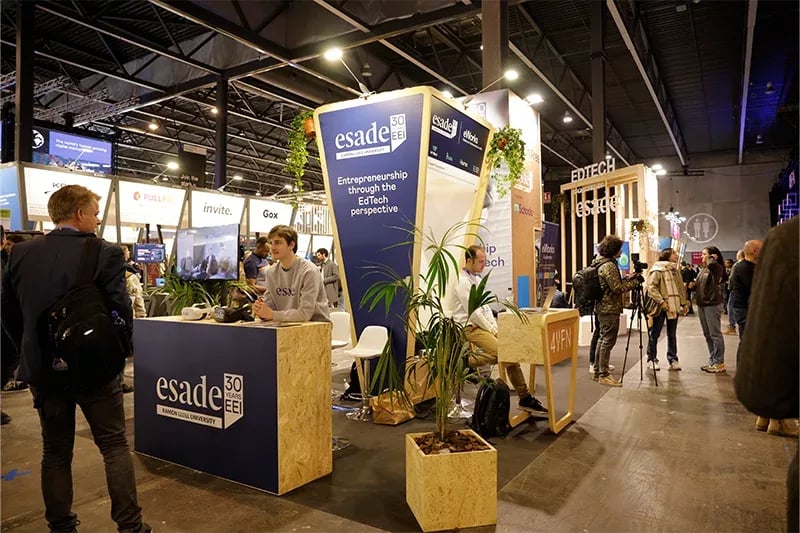News
Green is in the Air

Towards the launch of the Green Tech programme at 4YFN, we invited Àngel Castiñeira, Director of the Esade Chair of Leadership and Sustainability, to share his views about how climate change is impacting leadership, decision making and skills.
The world is going green. This means a change in skills for workers around the world, said Karin Kimbrough in 2020, head economist at LinkedIn. The last three years have proved her right. The creation of green jobs is accelerating in all sectors whilst the mainstream and specialized press announce the urgent need for sustainability managers. The green shift is already as important as the tech transformation.
But it’s no longer simply a question of having sustainability experts or officers. No matter how we make a living, or where we work, every job is a climate job now. The number of systemic risks we are now experiencing is overwhelming: climate change, the loss of biodiversity, new environmentally displaced persons, wider social inequalities, the possible collapse of natural and socioeconomic systems, increasingly frequent extreme weather, the scarcity of food and fresh water, more emerging diseases, growing social unrest and geopolitical conflicts. All this has made us more aware of the fallout of our decisions and actions.
For a long time, companies have been examining, debating and codifying how they should organize themselves, what part management must play and how they can optimize their strategy. They must now do the same regarding the systemic risks mentioned above, and learn when and how to impact the economy by delivering solutions for market shortcomings. To be precise, the new corporate responsibility for our immediate future will involve being able to respond to the systemic risk associated with sustainability, and doing so with new aims, attitudes, knowledge and tools.
This also implies overhauling our leadership models completely and adapting them to the “green” challenges that lie ahead. Esade business school is developing a four-point leadership model to foster the well-rounded advancement of managers who are competent (in their profession), engaged (with society and the environment), compassionate (about the quality of their interpersonal relationships) and aware (i.e. who develop their self-knowledge and cultivate a meaningful life).
Likewise, March 2022 saw the launch of the Inner Development Goals (IDG), a global initiative championing the concept that the inner development of leaders is an accelerator for achieving the Sustainable Development Goals and creating a prosperous future for all humanity. IDGs are defined as development in 5 realms: being (relationship with the self), thinking (cognitive skills), interacting (caring for other people and the world), collaborating (social skills) and taking action (driving change).
Green is undoubtedly in the air. The challenge now involves transferring it to the earth and helping to regenerate it.
ESADE is the supporting sponsor of the 4YFN24 Green Tech programme. To learn more about the programme visit this page.